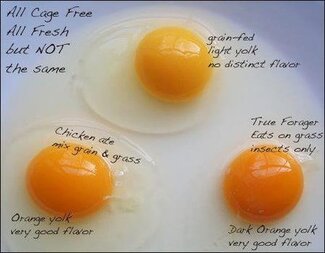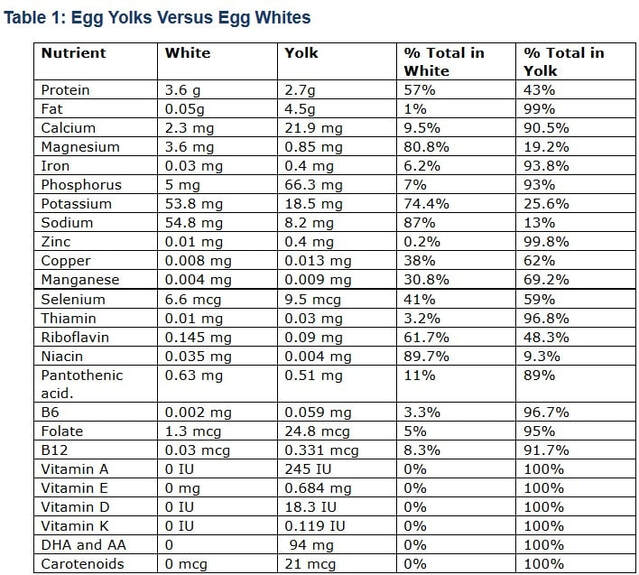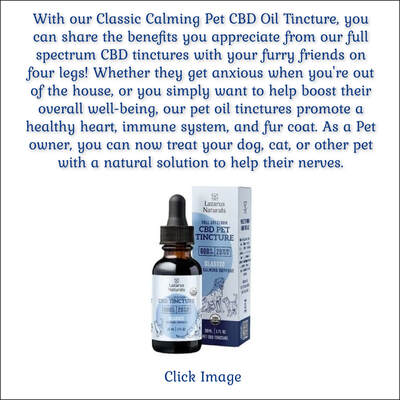
Egg yolks? But they're full of cholesterol!
Concerned about egg yolks and heart disease? Hop on down to Revolution Health Radio and listen to my three-part podcast interview with Chris Kresser (part 1, part 2, part 3) explaining why there was never any evidence that cholesterol-rich egg yolks contribute to heart disease, and what heart disease is really all about. No reading required!
I'm sure you've heard it before. When you think of a "health freak," you don't think of someone eating egg yolks and discarding the white.
Think again.
Egg yolks? But they're full of cholesterol!
Concerned about egg yolks and heart disease? Hop on down to Revolution Health Radio and listen to my three-part podcast interview with Chris Kresser (part 1, part 2, part 3) explaining why there was never any evidence that cholesterol-rich egg yolks contribute to heart disease, and what heart disease is really all about. No reading required!
I'm sure you've heard it before. When you think of a "health freak," you don't think of someone eating egg yolks and discarding the white.
Think again.
Egg Nutrition: Yolk vs. White
Egg yolks are indeed full of cholesterol. Like most cholesterol-rich foods, they are jam-packed full of important nutrients, especially the fat-soluble vitamins and essential fatty acids.
In fact, the slew of nutrients in an egg yolk is so comprehensive that a few a day would offer better insurance than a multi-vitamin. Most importantly, the yolk contains most of the nutrients in an egg.
Egg whites, on the other hand, contain far fewer nutrients. The only thing that could justify their consumption is their attachment to their companion yolk.
Don't believe it? Below is a table that compares the nutritional value of egg whites and yolks, with data provided by the USDA. I've included additional analysis in the last two columns that provides the percentage of the total nutrition found in the yolk and the percentage of total nutrition found in the white.
Egg yolks are indeed full of cholesterol. Like most cholesterol-rich foods, they are jam-packed full of important nutrients, especially the fat-soluble vitamins and essential fatty acids.
In fact, the slew of nutrients in an egg yolk is so comprehensive that a few a day would offer better insurance than a multi-vitamin. Most importantly, the yolk contains most of the nutrients in an egg.
Egg whites, on the other hand, contain far fewer nutrients. The only thing that could justify their consumption is their attachment to their companion yolk.
Don't believe it? Below is a table that compares the nutritional value of egg whites and yolks, with data provided by the USDA. I've included additional analysis in the last two columns that provides the percentage of the total nutrition found in the yolk and the percentage of total nutrition found in the white.
Data taken from the USDA Nutrient Database for Standard Reference, Release 15. AA and DHA data from No reading required!
And, in fact, the University of Connecticut has extensively studied the effects of eggs on cholesterol levels. These high-quality controlled studies have shown that when people consume three to four eggs per day, with the yolk, virtually everyone experiences either no change or beneficial changes in their cholesterol levels. Dr. Maria-Luz Fernandez has reviewed those studies here.
To Cook, or Not to Cook? The Benefits of Raw Egg Yolks
Many people believe that the health benefits of egg yolks are greater when the yolks are consumed raw. Heat destroys enzymes, reduces the amounts of certain nutrients, and may make the amino acid cysteine less available, which is needed to synthesize the master antioxidant of the cell, glutathione.
Those who eat raw egg yolks report easier digestion, increased stamina, and resistance to illness — not to mention a quicker snack if they're on-the-go.
That said, there is little evidence beyond such anecdotes that egg yolks are truly more beneficial when consumed raw.
There is also little evidence to support the common belief that consuming raw egg yolks is dangerous. Please see Dr. Mercola's article on the safety of eating raw egg yolks if you are concerned about this.
And, in fact, the University of Connecticut has extensively studied the effects of eggs on cholesterol levels. These high-quality controlled studies have shown that when people consume three to four eggs per day, with the yolk, virtually everyone experiences either no change or beneficial changes in their cholesterol levels. Dr. Maria-Luz Fernandez has reviewed those studies here.
To Cook, or Not to Cook? The Benefits of Raw Egg Yolks
Many people believe that the health benefits of egg yolks are greater when the yolks are consumed raw. Heat destroys enzymes, reduces the amounts of certain nutrients, and may make the amino acid cysteine less available, which is needed to synthesize the master antioxidant of the cell, glutathione.
Those who eat raw egg yolks report easier digestion, increased stamina, and resistance to illness — not to mention a quicker snack if they're on-the-go.
That said, there is little evidence beyond such anecdotes that egg yolks are truly more beneficial when consumed raw.
There is also little evidence to support the common belief that consuming raw egg yolks is dangerous. Please see Dr. Mercola's article on the safety of eating raw egg yolks if you are concerned about this.
|
Raw Egg Whites Contain Digestive Enzyme Inhibitors and Anti-Nutrients
Raw egg whites should not be consumed. They contain inhibitors of the digestive enzyme trypsin, which are destroyed by heat. Consuming 100 grams of raw egg white with one egg yolk compared to consuming the same food cooked was shown in one study to reduce protein digestion from 90 percent down to 50 percent. |
Raw egg whites also contain an anti-nutrient called avidin. Avidin is a glycoprotein that binds to the B vitamin biotin, preventing its absorption. Biotin is necessary for fatty acid synthesis and the maintenance of blood sugar, and is especially important during pregnancy when biotin status declines.
Residual Egg White Avidin — Cooking Does Not Fully Destroy the Anti-Nutrients
It is a myth that light cooking completely destroys the avidin.
According to this study, poaching eggs only destroys one third of the avidin while even frying leaves 30 percent of it behind.
This raises the question of whether there is a net nutritional advantage to eating any egg whites at all. Most likely, it depends on the individual person. There is controversy over whether biotin produced in the intestinal tract is absorbed — if intestinal biotin production is indeed nutritionally important, then people whose intestinal flora are less avid producers of biotin probably need to be more concerned about the potential adverse effects of consuming egg white.
It is a myth that light cooking completely destroys the avidin.
According to this study, poaching eggs only destroys one third of the avidin while even frying leaves 30 percent of it behind.
This raises the question of whether there is a net nutritional advantage to eating any egg whites at all. Most likely, it depends on the individual person. There is controversy over whether biotin produced in the intestinal tract is absorbed — if intestinal biotin production is indeed nutritionally important, then people whose intestinal flora are less avid producers of biotin probably need to be more concerned about the potential adverse effects of consuming egg white.
Finding The Right Kind of Eggs
Pastured eggs, meaning eggs from chickens that are free to forage for grass and insects, are of much higher nutritional quality than eggs from confinement chickens. The marginal increase in value, of course, is found mostly in the yolk.
Insects provide a higher DHA content, found exclusive in the yolk, and grass provides a higher vitamin E and carotene content, also found exclusively in the yolk. Egg yolks from pastured chickens are thus a powerful supplement to a healthy diet — a super-food — providing necessary nutrients in which the Standard American Diet is deficient.
To find a source of eggs from chickens raised on pasture, you can visit LocalHarvest.org and do a search for "eggs pastured" or "eggs grass fed" with your zip code. You can also visit EatWild.com and click on your state for a list of farms that pasture their animals.
Additionally, you may be able to find roadside stands in your area that sell eggs from pastured chickens. Be sure to inquire about the farming practices, to make sure that the chickens are able to forage for both grass and insects.
Pastured eggs, meaning eggs from chickens that are free to forage for grass and insects, are of much higher nutritional quality than eggs from confinement chickens. The marginal increase in value, of course, is found mostly in the yolk.
Insects provide a higher DHA content, found exclusive in the yolk, and grass provides a higher vitamin E and carotene content, also found exclusively in the yolk. Egg yolks from pastured chickens are thus a powerful supplement to a healthy diet — a super-food — providing necessary nutrients in which the Standard American Diet is deficient.
To find a source of eggs from chickens raised on pasture, you can visit LocalHarvest.org and do a search for "eggs pastured" or "eggs grass fed" with your zip code. You can also visit EatWild.com and click on your state for a list of farms that pasture their animals.
Additionally, you may be able to find roadside stands in your area that sell eggs from pastured chickens. Be sure to inquire about the farming practices, to make sure that the chickens are able to forage for both grass and insects.
Back to the Basics: Taste!
The truth is that most satisfying meals one could make with eggs just don't taste right without both the yolk and the white. Most baked goods come out with a richer taste and a better texture when the yolks are included. Food should provide good nutrition — for which inclusion of the yolks is necessary! — but it should also taste good.
Food should be fun. It should be rewarding to cook, delicious to eat, and relaxing to indulge in.
The anti-cholesterol establishment upholds its poor theory and unjustified conclusions only to condemn us to a bland and unsatisfying diet, the cornerstone of which is "light cooking" with bland and taste-challenged "foods" like the notorious, emasculated, yolkless egg white.
Fear not.
You are now armed with the raw facts from the USDA's nutrition database that shows that missing out on the egg yolks means missing out on the nutrition in your breakfast. Take heart in this the next time you enjoy the incredible, edible egg yolk.
http://www.cholesterol-and-health.com/Egg_Yolk.html
The truth is that most satisfying meals one could make with eggs just don't taste right without both the yolk and the white. Most baked goods come out with a richer taste and a better texture when the yolks are included. Food should provide good nutrition — for which inclusion of the yolks is necessary! — but it should also taste good.
Food should be fun. It should be rewarding to cook, delicious to eat, and relaxing to indulge in.
The anti-cholesterol establishment upholds its poor theory and unjustified conclusions only to condemn us to a bland and unsatisfying diet, the cornerstone of which is "light cooking" with bland and taste-challenged "foods" like the notorious, emasculated, yolkless egg white.
Fear not.
You are now armed with the raw facts from the USDA's nutrition database that shows that missing out on the egg yolks means missing out on the nutrition in your breakfast. Take heart in this the next time you enjoy the incredible, edible egg yolk.
http://www.cholesterol-and-health.com/Egg_Yolk.html



















